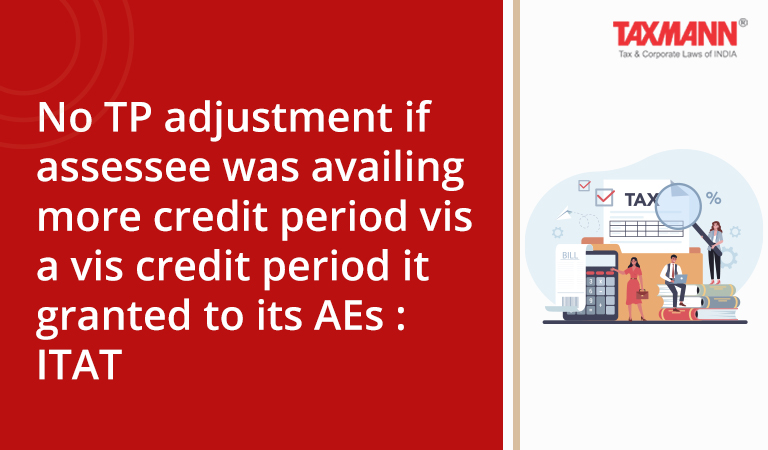No TP adjustment if assessee was availing more credit period vis a vis credit period it granted to its AEs : ITAT
- Blog|News|Transfer Pricing|
- 2 Min Read
- By Taxmann
- |
- Last Updated on 30 November, 2021

Case Details: Coim India (P.) Ltd. v. DCIT - [2021] 132 taxmann.com 207 (Delhi - Trib.)
Judiciary and Counsel Details
-
- Anil Chaturvedi, Accountant Member and K. Narasimha Chary, Judicial Member
- Nageshwar Rao and Chakarborty, Advs. for the Appellant.
- Surender Pal, CIT/DR and Bhagwati Charan, Sr. DR for the Respondent.
Facts of the Case
Assessee filed the return of income declaring certain income. During the assessment, AO noticed that the assessee had undertaken certain transactions with its Associated Enterprise (AE). Thus, the international transactions entered into by the assessee with the AEs were referred to the Transfer Pricing Officer (TPO) for determining the Arm’s length price (ALP).
AO believed that any delay beyond the credit period should be benchmarked as an international transaction. By applying the same, he calculated the interest chargeable on receivables by taking the credit period as 30 days, and the TPO also suggested adjustment.
ITAT Held
The Delhi Tribunal held that the assessee did not charge any interest receivable by them from the AEs, and it was their policy not to charge so in respect of interest both payable and receivable. Further, the interest payable by the assessee was more than the interest receivable, and such interest on receivables was ingrained in sales itself.
The AO took into consideration only the interest chargeable but did not consider the interest payable. If both the interest chargeable and interest payable were taken into consideration and set-off was allowed, that would lead to no adjustment at all. Therefore, adjustment on account of interest receivable was to be deleted.
Case Review
-
- Coim India (P.) Ltd. v. Asstt. CIT [2018] 96 taxmann.com 511 (Delhi – Trib.) (para 13) followed.
List of Cases Referred to
-
- Coim India (P.) Ltd. v. Asstt. CIT [2018] 96 taxmann.com 511 (Delhi – Trib.) (para 13) followed.
- Pr. CIT v. Kusum Health Care (P.) Ltd. [2018] 99 taxmann.com 431/[2017] 398 ITR 66 (Delhi) (para 16).
Disclaimer: The content/information published on the website is only for general information of the user and shall not be construed as legal advice. While the Taxmann has exercised reasonable efforts to ensure the veracity of information/content published, Taxmann shall be under no liability in any manner whatsoever for incorrect information, if any.

Taxmann Publications has a dedicated in-house Research & Editorial Team. This team consists of a team of Chartered Accountants, Company Secretaries, and Lawyers. This team works under the guidance and supervision of editor-in-chief Mr Rakesh Bhargava.
The Research and Editorial Team is responsible for developing reliable and accurate content for the readers. The team follows the six-sigma approach to achieve the benchmark of zero error in its publications and research platforms. The team ensures that the following publication guidelines are thoroughly followed while developing the content:
- The statutory material is obtained only from the authorized and reliable sources
- All the latest developments in the judicial and legislative fields are covered
- Prepare the analytical write-ups on current, controversial, and important issues to help the readers to understand the concept and its implications
- Every content published by Taxmann is complete, accurate and lucid
- All evidence-based statements are supported with proper reference to Section, Circular No., Notification No. or citations
- The golden rules of grammar, style and consistency are thoroughly followed
- Font and size that’s easy to read and remain consistent across all imprint and digital publications are applied



 CA | CS | CMA
CA | CS | CMA
